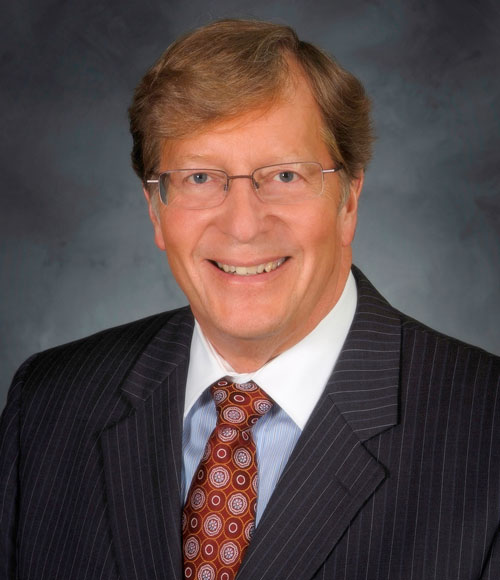Superintendent Michael Shibler said he understands why some parents were upset when the district recently shifted to virtual learning for the first 12 days of the school year. But that’s the nature of the continuing shifts in COVID-19 outbreaks and the state’s response to them, he said.
“This is how rapidly changing that landscape can be with this COVID,” Shibler said of his recommendation to the school board Aug. 10 for an all-virtual opening.
The board unanimously approved teaching all students online through Sept. 11, then giving them a choice of in-person or virtual learning. Developed through months of planning by administrators, teachers and support staff, the Return to Learn plan was amended late in the game because of rising COVID cases and Gov. Whitmer declaring another state of emergency, Shibler said, calling the change “in the best interest of our children, staff and community as a whole.”
Indeed, even before school began on Monday, Aug. 24, the pandemic touched the school community. The marching band had to cancel on-field practice for two weeks after an asymptomatic student marcher tested positive, apparently infected by a coworker on a summer job, Shibler said. Working with the Kent County Health Department, the district had parents monitor other band members at home, taking their temperatures daily. No further cases have come to light, he said.
Besides providing more time to track the virus, opening virtually also helps teachers gear up for online instruction, including the possibility of the state reverting to Phase 3 where all schools would be closed again, he said.
“I want our teachers trained and ready to go if that should happen. I hope it doesn’t, but if it does … at least our teachers will have had at least 12 days of experience.”
Choice of Two Paths

As the school year begins Monday, teachers will livestream online lessons from their classrooms. Once in-person classes commence as planned on Sept. 14, students choosing the virtual option will use online curriculums provided by Saavas Realize (elementary) or Apex Learning (secondary), working on district-issued devices. Each virtual student will be assigned to a Rockford teacher to provide support and instruction, and with whom the student can meet face-to-face by appointment.
For those choosing in-person classes, schools will provide sanitizer, plastic screens around desks for medically fragile students and regular cleaning of desks, doorknobs and light switches. All staff and students must wear face coverings except if they are medically exempt or at lunch; students are expected to bring their own masks but schools will have them available.
All guidelines of the MI Safe Schools Return to School Roadmap are followed except the recommendation to keep desks 6 feet apart, because most classrooms aren’t big enough, Shibler said. “We’ll do the best we can.”
Adopting a hybrid model, where students attend class on staggered days while also learning online, “does not eliminate potential exposure” to the virus, he said. But while keeping students as safe as possible, ultimately it’s crucial to have them in school, he stressed.
“We all know the most effective way for students to learn and to find success academically as well as emotionally as well as socially, is together in classrooms. There’s no question about that,” he said. Despite improvements in virtual instruction, he added, “Online is not an effective substitute for in the classroom.”
The pandemic poses major medical challenges for schools, he said, including speedier testing, more people to do contact tracing and more funding for protective equipment. The academic, social and emotional challenges are formidable. It’s going to take the whole community to deal with them, Shibler said.
“We have to be patient, and we have to be tolerant, and we have to be willing to be flexible and adjust. Because if we can’t, the COVID is not going to stay static.”
CONNECT









